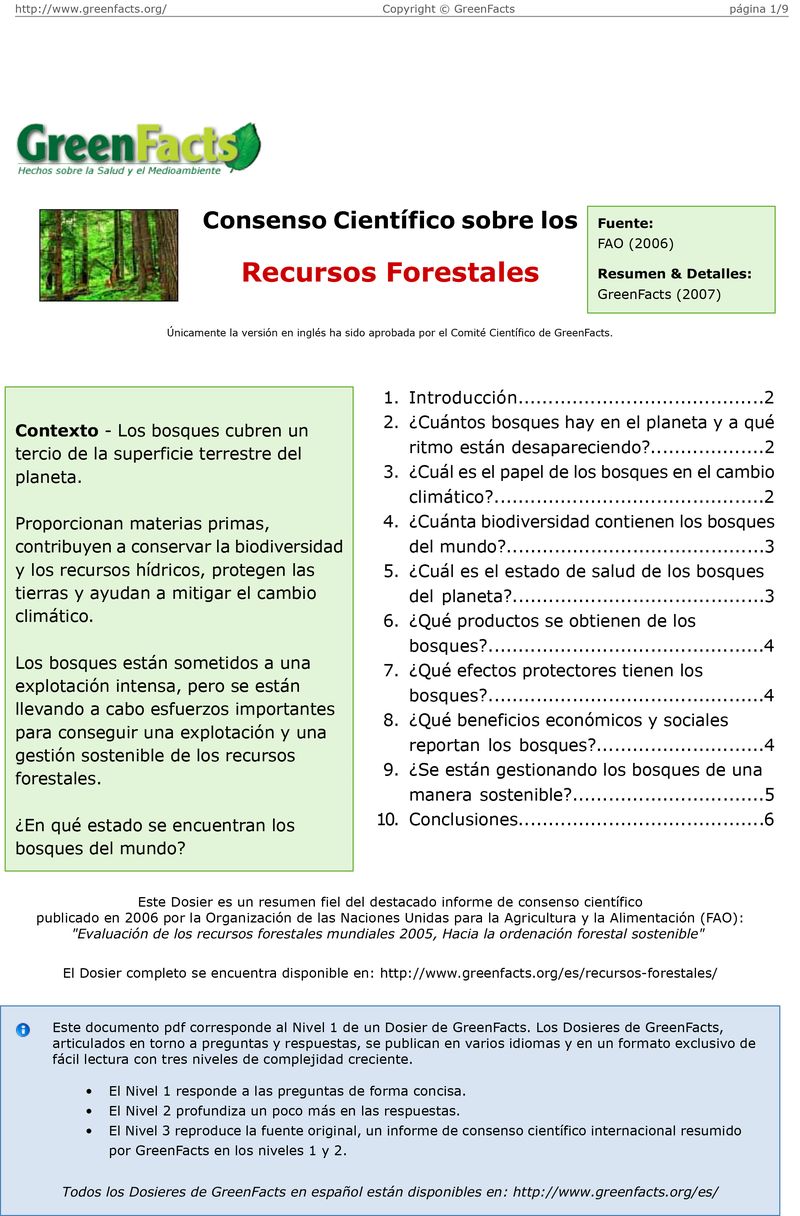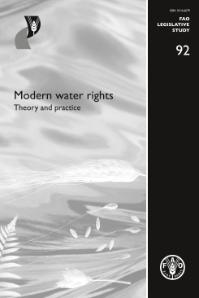Focal point
Location
The Food and Agriculture Organization of the United Nations leads international efforts to defeat hunger. Serving both developed and developing countries, FAO acts as a neutral forum where all nations meet as equals to negotiate agreements and debate policy. FAO is also a source of knowledge and information. We help developing countries and countries in transition modernize and improve agriculture, forestry and fisheries practices and ensure good nutrition for all. Since our founding in 1945, we have focused special attention on developing rural areas, home to 70 percent of the world's poor and hungry people.
Members:
Resources
Displaying 3276 - 3280 of 5074Consenso Científico sobre los Recursos Forestales
Este dossier es un summary fiel del destacado informe de consenso científico publicado en 2006 por la Organización de las Naciones Unidas para la Agricultura y la Alimentación (FAO): "Evaluación de los recursos forestales mundiales 2005. Hacia la ordenación forestal sostenible" El dossier completo se encuentra disponible en: http://www.greenfacts.org/es/recursos-forestales/ Cerca del 42 % de los bosques primarios se encuentran en Sudamérica.
Land reform: Land settlement and cooperatives
This bulletin is issued by FAO as a medium for the dissemination of information and views on land reform and related subjects to the United Nations, FAO Member Governments and national and international experts and institutions. Articles are published in the original language (English, French or Spanish).
Land reform: Land settlement and cooperatives
This bulletin is issued by FAO as a medium for the dissemination of information and views on land reform and related subjects to the United Nations, FAO Member Governments and national and international experts and institutions. Articles are published in the original language (English, French or Spanish).
Land reform: Land settlement and cooperatives
This issue of Land Reform, Land Settlement and Cooperatives offers the reader a series of articles and information related to the discussions that will take place in March 2006 in Porto Alegre, Brazil, at the International Conference on Agrarian Reform and Rural Development (7–10 March). Needs have changed and there are new dimensions to previous concerns. Gender issues have been integrated into FAO activities, and Land Reform, Land Settlement and Cooperatives has published articles on how the rights of rural women have or have not been taken into account in agrarian reform programmes.
Modern water rights
This publication offers a fresh look at the theory and practice of modern water rights, from a comparative law angle. It sheds light on a number of key features of such rights, and contrasts these to traditional forms and kinds of water rights. It teases out and discusses the relevant problematique, including in particular that elicited the sale and leasing of water rights. Finally, a stock-taking and assessment of modern water rights systems impacts are volunteered. This publication complements two earlier issues featured in the FAO Legislative Studies series, i.e.









